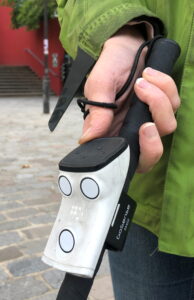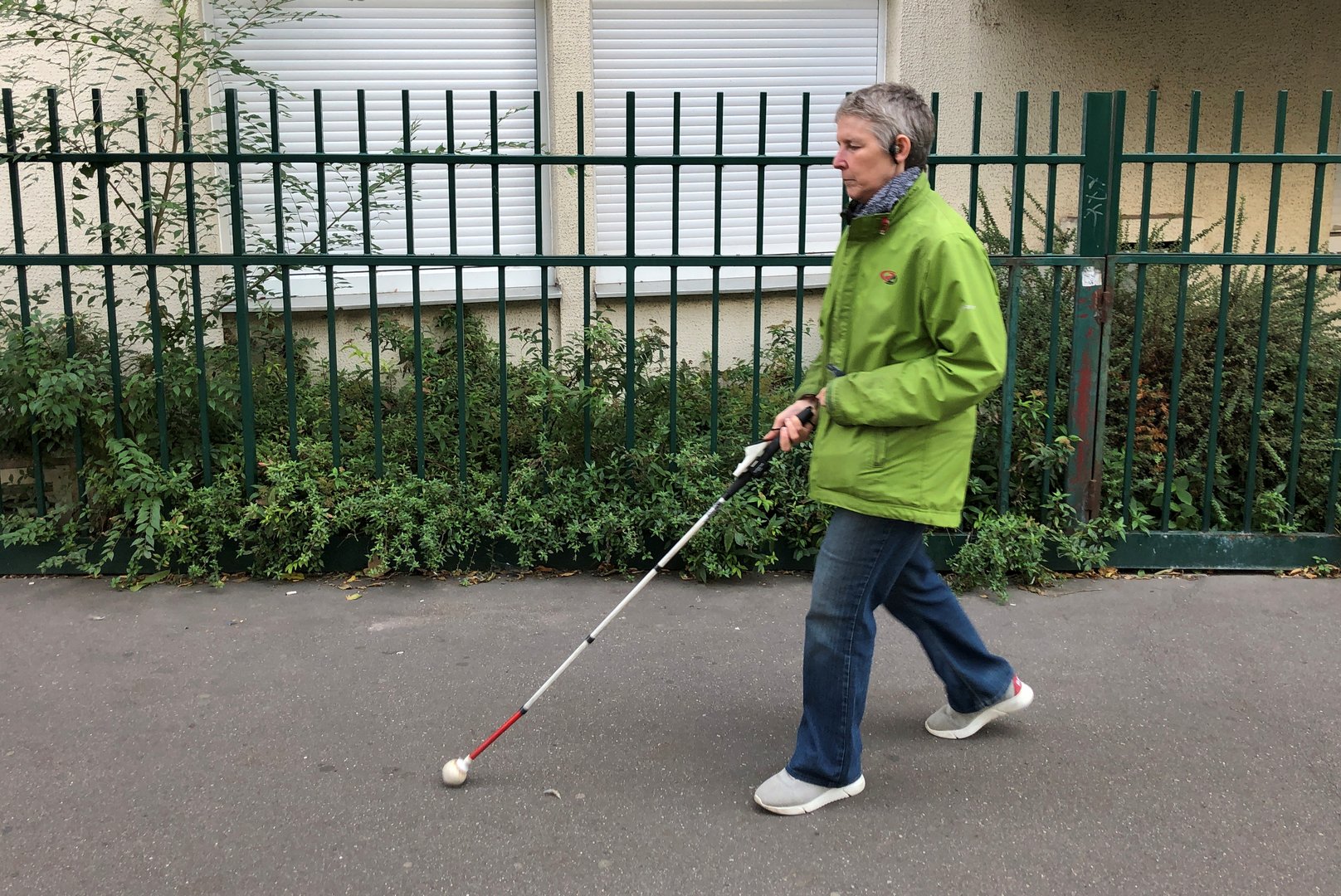As she walks down a Paris sidewalk, visually-impaired Frenchwoman Laurence Jamet approaches a garbage can blocking her path. A beep sounds in her ears to warn her of the obstacle, she takes a step to the right to dodge it, and continues on her way.
Jamet is using an electronic device, developed by a French company, that uses sensors to spot an obstacle in the path of a user and gives them the information they need to go around it.
Blind since birth, Jamet has for years used a white stick to get around. It allows her to scan at ground level for obstacles, but it does not stop her colliding with objects sticking out above, like for example the open door of a truck.
“It’s not unusual for me to come home with a bloodied forehead,” said Jamet.

September 21, 2021. Image;REUTERS/Manuel Ausloos
The device, which mounts on the top of her cane and sends information to her via headphones, fills that gap. “I get hit much less, and so I am less stressed,” Jamet said of her experience using the gadget.
According to Francois Birot, co-founder of Gosense, the firm that developed the device, the big challenge was to not overload the user with information.
The device is designed to work out the user’s trajectory, and only let them know about obstacles directly in their path. If the obstacle is ahead of them but to the right, the alarm will sound in their right ear, letting them know they need to take a detour to the left.
To date, the device is being used by nearly 400 people in France, with a handful of models in use in Switzerland, Germany, Belgium and Italy.
It sells for 2,000 euros ($2,348), though eligible people in France have most of the cost reimbursed by local government agencies.







Click here to change your cookie preferences